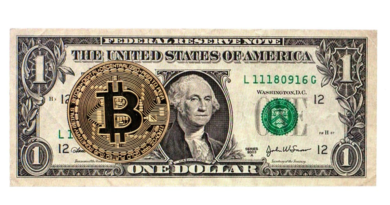Coca-Cola is going reverse Yankee by selling €1 billion of Euro debt to cover a potential tax charge
Coca-Cola is a behemoth in every right. That means big profits and financial implications with a multi-billion-dollar price tag.
The company, which sells its eponymous drink pretty much in every part of the world, has been in a long-drawn dispute with tax authorities in the U.S. over a $16 billion charge that it could possibly owe.
While the full amount hasn’t come due yet, Coca-Cola is preparing for the possible cost by selling €1 billion in new debt, the Financial Times reported Thursday.
The beverage company said last week that it’s preparing to pay $6 billion over unpaid taxes and interest about 15 years ago following a U.S. tax court ruling.
Coca-Cola plans to issue two €500 million bonds and apply the proceeds to “potential payments” in its dispute with the Internal Revenue Service (IRS).
The company’s “reverse Yankee” move, wherein U.S.-based companies raise money in Euro or Sterling bond markets, has become more common among companies looking for debt financing avenues. It allows American companies to take advantage of central bank monetary policies in different regions. It could also be a useful tool if they have sprawling European operations and need financial in the local currency.
In recent years, bike company Harley Davidson and consumer giant Colgate-Palmolive have resorted to the reverse Yankee route. Earlier this year, Johnson & Johnson opted for this method to raise €2.5 billion by tapping on lower borrowing costs in Europe.
This form of bond issuance saw a major spike in 2019 when the European Central Bank’s stimulus push impacted bond yields in Europe. By May, roughly €30 billion had been raised in EU bonds by U.S.-based companies, according to Bank of America research.
This bodes well for Europe as investors in the region can be exposed to American companies without undertaking the U.S. dollar debt’s risk, according to investment firm T.Rowe Price.
Coca-Cola raised €1 billion in Euro bonds earlier this year, along with $3 billion in U.S. dollar bonds, which were intended to finance a deal and help offset the IRS case charges.
The U.S. court judgment found that the Atlanta, Georgia-based had made “astronomical levels” of profits by operating in low-tax countries and keeping that away from the eyes of U.S. authorities. That has resulted in a potential $16 billion liability as Coca-Cola has manufacturing locations worldwide and is enough to nullify a year and a half’s profits at the soft drinks giant.
Coca-Cola plans to appeal the court’s decision.
Representatives at the company didn’t immediately return Fortune’s request for comment.




